#research and organize material into a book
Explore tagged Tumblr posts
Text
A Baker’s Dozen of Reasons You Should Write a Nonfiction Book
Have you ever thought about writing a nonfiction book? I have written several and I am glad I did. If you have thought about writing one too, here are several reasons that might help encourage you to write your own nonfiction book. You’ll Enjoy Being Called an Author Writing a nonfiction book about what you know is easy. I find that nonfiction books are easier to write than novels. Back in…
#a book as a steppingstone#a lower-tier business product#add value to business with a book#book as a business card#build an income stream#call yourself an author#create an income stream#family legacy book#friends and family#how to begin creating a high-end course#how to make your voice heard#reasons to write a nonfiction book#research and organize material into a book#share what you know
0 notes
Text
𝕎𝕙𝕒𝕥 𝕋𝕙𝕖𝕪 𝔻𝕠 𝕎𝕙𝕖𝕟 𝕐𝕠𝕦’𝕣𝕖 𝕊𝕚𝕔𝕜
Incl. Umemiya, Hiragi, Tsubakino, Choji, Togame
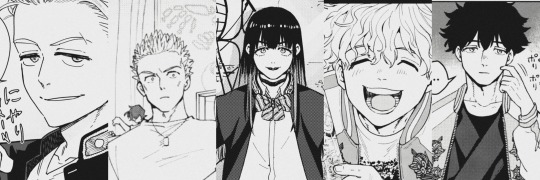
Umemiya
Having grown up in a group home, Umemiya knows how to be the best care giver ever
That being said: he’s also insanely clingy and affectionate on his worst days
He’s attentive to a T
With Kotoha’s help he’s bringing you homemade soup, full of fresh veggies from his garden
He’s making you tea and keeping water bottles near by whenever you even mention wanting a drink
Sends his four kings out to watch over while he’s with you because he refuses to leave your side until your healthy— doesn���t matter if it’s a cold or the flu
Still cuddles with you, despite you telling him he’ll get sick— he tells you his love and affection will make you feel better
Whenever your fever spikes he’s quickly getting a wet cloth, laying it on your forehead and humming a wordless tune or telling you stories softly
He’s there to wake you up whenever you have fever induced nightmares, and holds your hair back if you rush to the bathroom to be sick
If you even feel the tiniest bit insecure because you feel gross and greasy he shuts that down: by telling you:
“In sickness and in health!” “That’s— those are wedding vows?” “Ha, yeah! But think of them as…pre-engagement, pre-wedding vows now! Hey— your face is all red, did your fever spike again?”
If you’re far enough into your relationship he’ll help you bathe: his hands are gentle as he washes your hair, no wandering touches as he helps you clean your body
He’s so soft you nearly fall asleep in the water, lulled into a serene peace by his soft voice and gentle touches
He combs your hair once it’s dry enough, braiding it to keep it out of your face and wrapping you your freshly washed sheets you have no idea when he had time to clean
Overall; 11/10 to take care of you when you’re sick
Even if he does end up getting sick himself after
Hiragi
You probably got sick after he warned you to bring your coat with you or not to stay up too late let’s be real
Dad sighs and twitching eyes
But he’s buying all the best meds and electrolyte drinks
I personally believe this man knows how to cook so he’s making you homemade soup, congee and other things his mom used to make him when he was sick
Brings a type of lemon “candy” that helps with your throat, knows they work because he keeps them on him in case Kaji needs them
He stays with you, but he gives you space
1. Because he needs to make sure he doesn’t get sick— he has to take care of you firstly, and secondly he cannot let Umemeiya free of him for too long
2. Because he knows you’ll want space occasionally; to sleep, to rest, to regenerate your social battery
While you nap he’s cleaning around; washing and folding clothes, doing dishes, organizing your mail— he’s completely husband material
When you want him near he’ll have you lay your head on his lap, and he’ll run his fingers through your hair and read to you— literally any book you choose he’ll read without hesitation
He’ll be so attentive and supportive when you’re sick, and he makes sure to continue to give you vitamins even after to help you avoid being sick again
But even when you are he’ll be there again
15/10 he’s just so HUSBAND MATERIAL
Tsubakino
LOOK
if there’s one thing anyone knows about me it’s I am a Tsubaki stan first and a human second
that being said
I imagine him taking care of you being sick is, while sweet, also a bit panicky
I imagine he has this weirdly insane immune system so he’s hardly ever gotten sick, and he’s also an only child so this isn’t super familiar territory
but he tries
does so much research he might go a bit overboard
“My darling! I got cough medicine, fever reducers, cooling masks, some cough drops Hiragi suggested! I got some water bottles and Suo-chan suggested different teas— I wasn’t sure which one would be best so I got all six! Nirei-chan said to get electrolytes so I got different flavors of those! And Kotoha-chan made soup! And congee! And I can order more, in fact I have a few different soups on the way!”
he just hates seeing you feel so bad
he’s a ball of nerves around you, always checking in on you and asking what you want, what you need, what you’d like
you can’t even be annoyed he’s so sweet
he helps you bathe, much like Umemiya, he’s sweet and attentive
he brings over his own stuff too; bathbombs, shower steamers, hair masks, face masks
he can’t make the illness disappear but you’ll at least feel clean and good on the outside
he takes his time with your hair and face, and he’s basically your personal masseuse in the bath
you’re never felt so relaxed despite being as sick as a dog
even though you’re sick he’s still quick to press kisses to your cheeks and forehead, face red from fever, embarrassment, and lipstick stains now
paints your nails while you rest with a cold press on your head, tells you about the latest debacle between Umemeiya and Hiragi and Sugishita and Sakura
by a miracle he doesn’t get sick
and he stores all the leftover meds and electrolytes (there’s a lot) between your place and his so he’s prepared next time
overall: 1000000/10
realistically: 10/10 (but always 100000/10 in my eyes)
Choji
oh boy
o h b o y
let it be known you try to hide the fact you’re sick from him for as long as possible
read: you fail
he’s showing up at like 7am, waking you up and charging in
did he bring anything?
of course
he’s brought snacks
not healthy ones
you’re not hungry because you’re nauseous, so he just stores them in your fridge and comes to cuddle you
he’ll wait on your every command don’t get me wrong
want water? he’s grabbing you a glass
need to go to the bathroom? he’s helping you up and walking you there, waiting outside the door and helping you back
bored? he’ll tell you all the thoughts in his head! and there’s a lot!
hungry? he’s grabbing those snacks for you!
he’s attentive and sweet, but he definitely is spoiled by Togame so much he’s not entirely sure how to take care of a sick person
but he’s strong so he’ll just beat your illness for you!
he’ll hold you while you rest, turn your fan on when you say you’re hot, turn it off when you’re cold
he tries to braid your hair while you rest, it’s messy but he tried
he ends up getting sick before you’re even better yourself
now Togame is tasked with coming to your place and taking care of both of you
overall: 7/10
he tries he really does
but he charges in with no instructions and just love
which is great but doesn’t treat the flu
Togame
he probably has taken care of an ill choji (^) so he knows what he’s doing
the patience of a saint holy—
he comes to see you when you’re asleep, and he’s silent as he unpacks stuff from the nearby convention store
you wake up startled at him just chilling, probably drinking a ramune and reading something
he keeps his voice soft as he asks if you’re hungry or thirsty
helps you sit up as he hands you a water bottle, and if your hands are too shaky he’d holding it for you to drink out of
he won’t even let you open your mouth to apologize before he’s giving you that stupidly soft smile and telling you he’s happy to take care of you
he keeps the curtains shut so the light in your room is dim, and he brings in candles with your favorite scent so the lights don’t hurt your eyes and the scent helps you feel calmer
not much of a cook himself when it comes to specific food to help you, but he grabbed take out on the way and heats up the perfect portions whenever you’re hungry
not too much so you leave food on the plate but not too little so you’re still hungry after
the man that he is
can definitely see him massaging your hands, your arms and your shoulders cause you’re tense from feeling ill
keeps a bucket or a bag nearby in case you get sick and can’t make it to the toilet
does a little braid to keep your hair out of your face, jokes about how he learned how to braid his hair so he’d he perfect at it for you
tries to brew you tea, and either burns it or under-steeps it
you both opt for just water for the time being
doesn’t get sick, but definitely sleeps for an entire day after you’re healthy
you both do actually— a long sleep cuddled up together
overall; 13/15 i think i made myself fall more in love with him
#hajime umemiya x reader#toma hiragi x reader#tsubakino tasuku x reader#choji tomiyama x reader#togame jo x reader#windbreaker x reader#wind breaker x reader#umemiya hajime x reader#hiragi toma x reader#tasuku tsubakino x reader#tomiyama choji x reader#jo togame x reader
531 notes
·
View notes
Text

★ — READ YOU LIKE A BOOK
★ — pairing: professor!abby x fem!librarian
★ — abby always kept an eye on you. working here was her distraction. you were smart, beautiful, and read her with ease.
★ — warnings: sexual content
★ — moodboard by me :)
🏷️ — @rosemariiaa @d3arapril @grey-jedi12 @mystellenia @vicsstufff @layalisthings

The library was quiet in the late afternoon, the golden sunlight streaming through the high windows, illuminating the rows of bookshelves. You were perched on your usual stool at the circulation desk, checking in a cart full of returns when you heard the familiar sound of hesitant footsteps.
Looking up, you saw her--Professor Abby Anderson.
Abby was a regular at the library, often dropping by to borrow research materials for her lectures, or just to spend time reading in the quiet corners of the building. Her reputation on campus was one of brilliance and humility, though she was known to be shy. But with you, there was something else--something that made her smile linger a little longer, her voice lower when she spoke.
"Hey," Abby greeted, her hands shoved into the pockets of her blazer, her cheeks already tinged pink.
"Hi, Professor Anderson," you replied, a teasing smile tugging at your lips. "What brings you here today?"
"Abby. Abby is fine," she corrected softly, glancing away for a moment before meeting your eyes again. "I was, um, hoping you might help me with something."
"Of course I can," you said, setting your work aside. "What'd you need?"
Abby hesitated, shifting her weight from one foot to the other. "I--uh--there's this... thing I'm working on. In my office. At home. And I thought maybe... you'd like to come by? Help me organize?”
You blinked in surprise, her nervousness catching you off guard. It wasn't unusual for professors to ask for help finding books or resources, but an invitation to her home? That was new.
"I'd love to," you said, your curiosity piqued.
Abby's face lit up with a shy smile. "Great. Tonight? Around seven?"
"Sure," you agreed, your heart skipping a beat at the way her blue eyes sparkled.
----
Abby's apartment was exactly what you'd imagined—tidy, warm, and filled with books.
Shelves lined the walls of her living room, and soft lighting gave the space a cozy glow. She led you to her office, a smaller room tucked away at the back of the penthouse.
The office was a mix of order and chaos. Her desk was covered in papers and notebooks, while the shelves were stacked with books of varying sizes, some teetering on the edge. A small couch sat against one wall, and a window overlooked the street below.
"Sorry about the mess," Abby said, scratching the back of her neck. "I've been meaning to organize it for a while, but I always get... distracted."
"It's not so bad," you said, stepping inside and taking it all in. "It feels... lived-in. Comfortable."
She smiled at that, her eyes following you as you wandered around the room.
As you reached her desk, you leaned back against it, running your fingers along the edge. "This is a nice setup," you said, glancing at her.
Abby froze for a moment, her gaze fixed on you. You could see the faintest hint of pink creeping up her neck as her eyes darted from your face to where you were sitting, her mind clearly elsewhere.
"You okay?" you asked, tilting your head in amusement.
"Y-yeah," she stammered, rubbing the back of her neck. "Just, uh... you look really good there."
"On your desk?" you teased, arching an eyebrow.
Abby swallowed hard, her lips curving into a nervous smile. "Maybe."
The air between you grew heavier, the playful tension shifting into something deeper. Abby took a tentative step closer, her hands twitching at her sides as if unsure of what to do.
"You're staring," you pointed out, though your voice was softer now, your heart pounding in your chest.
"Can't help it," she admitted, her voice barely above a whisper.
Something in her tone made your breath catch. You reached out, brushing your fingers against her hand. That small touch seemed to break the spell holding her back.
Abby closed the distance between you, her hands resting on either side of the desk, caging you in but still giving you space to pull away.
"Is this okay?" she asked, her voice trembling slightly.
"Yes," you whispered, your gaze locked on hers.
Her lips met yours in a tentative kiss, soft and searching. But as you leaned into her, your arms wrapping around her neck, the kiss deepened. Abby's hand found your waist, pulling you closer as her other hand rested on the desk beside you.
When you finally broke apart, both of you were breathless, her forehead resting against yours.
"I've wanted to do that for a while," Abby admitted, her voice still shaky.
"Why didn't you?" you asked, smiling as you ran your fingers through her blonde hair.
"Didn't think l'd have the courage," she said with a soft laugh.
You cupped her face, your thumb brushing against her cheek. "You've got more courage than you think."
“You wanna test that theory?” Abby says, a sly grin creeping across her face.
“Maybe I do, Professor.”
——
You’re sitting pretty on Abby’s sleek, wooden desk, short pencil skirt leaving nothing to the imagination.
“Need you to take this off, honey.” Abby says, gesturing your neatly tucked blouse, that was practically see-through. Seeing you everyday in this little skirt drove Abby crazy, and spreading your legs open for her satisfaction was all she could think about.
“W-whatever you want, professor.” You whine, as Abby slowly slides her hands on your sides, towering over you to kiss your neck.
“What’d I tell you, honey. Abby. Call me Abby.” She says teasingly, brushing your hair away from your face.
“You smell so fuckin’ good, baby.” She murmurs into your ear, kissing that sweet spot on your neck, causing a moan to erupt from your core.
“You liked that, honey?” Abby says with a soft chuckle, taking this as a sign.
“Fuck..” You moan out, as Abby’s thick finger slowly circled your bud through your panties, stimulating you instantly.
“S—shiiittt… Abby. Keep talkin’ to me, please?” You whine again, your digits burying themselves into Abby’s hair, undoing the neat braid she had it in.
“Pussy’s callin’ my name, honey. Let Abby make you feel good, yeah?” She coos, her thick digits moving away from your cunt. You were soaked, and in the moment you were embarrassed that Abby made you feel this way, but you needed this. Bad.
Abby unbuttons your blouse, the lace black bra you wore underneath was a sight to see. Your tits were beautiful, and the dainty necklace you had sat classy right between them.
“You can take it off, Abby.” You tease, as Abby’s eyes were glued to the image in front of her, a discarded blouse with your tits on display, the tightest skirt imaginable with the thinnest lace panties underneath, all over her desk.
“Right, right. Sorry, you’re just… everything I’ve imagined.” She whispers, looking deep into your eyes.
“Yeah, Anderson? Wanna taste me?” You ask with pure seduction, batting your thick eyelashes at her.
She’s melting.
“Wanna fuckin’ taste you so bad, honey.” She says, pushing her glassed up slighty.
“Taste me, Abby.” You tease, stroking her chin.
Abby sinks to her knees, spreading your legs apart. She works her way up your skirt, slowly pulling the lace covering your pussy down. She takes the zipper of your skirt, taking her time to now slide it down your thighs.
Your legs, your thighs, your pussy.
Glistening. Perfect.
“Jesus…” She says, adjusting her glasses. “You’re soaked.”
You moan, her cold fingers caressing your folds, feeling the slick building up.
Abby spreads your legs apart, slotting her mouth right between them.
She laps mercilessly at your cunt, taking in all the juices spilled all over her desk. You tasted just as she imagined, sweet and perfect.
Abby thought about this moment ever since you started working on campus, the image of your plush tits in front of her, your legs open for her.
“Fuck… Abby—right.. mmph.. there.” You manage to moan out, your grip in Abby’s hair unstable.
“Mmm.. taste so… goddamn good, honey.” She groans, her grip on your thighs tightening.
Her tongue thrusts harder into your cunt, the sounds of your wetness pornographic.
“Need you.. to cum.” Abby moans into your pussy, the vibration bringing you closer and closer to the edge. You hadn’t felt like like this in such a long time, taking so much time with your own fingers stuffed in your cunt, in your lonely apartment.
“M’so.. close..” You cry out, causing Abby’s pace to quicken.
She slaps your thighs, and that familiar feeling of warmth erupts in your core.
And just like that, you snap, and cum all over Abby’s tongue.
“Perfect, honey.” She reassures, making sure to lick up every last drop of you.
You catch your breath, as Abby slowly lifts you bridal style, carrying you to her master bedroom.
She lays you down, tucking you under her silk sheets.
“Lemme read to you, yeah?”

#abby anderson#abby anderson smut#abby the last of us#abby x fem!reader#ke’s blog 🪽#abby anderson moodboard#ke’s works 🪽
239 notes
·
View notes
Note
heyo- a friend is trying to get me to read 1984 because 'it'll totally change your worldview on government and anarchism', but i've heard some bad things about the book itself/george orwell. should i read it? is there anything similar/more theorylike i could read instead?
thank you! your blog rocks <3 <3
Go ahead and read it if you want. It's a classic entry into the genre of dystopian science fiction and it has spawned many imitators since its publication. However, if you're looking for actual theory or history, you won't find it there. I would recommend Pat Sloan's "Soviet Democracy" or Anna Louise Strong's "The Soviets Expected It" and "The Stalin Era" if you want real accounts of the Soviet Union under Stalin.
Orwell never actually visited the Soviet Union, and 1984 is based not on his own personal experience with the country but instead on Western propagandistic views of the country and his own displeasure towards the fact that during World War II, when the UK and the USSR were allies, the British press was much less keen to publish anti-Soviet works right at the same time he was trying to get Animal Farm published. You must also understand that his wife worked for the UK's Ministry of Information as a censor and Orwell himself worked at the BBC producing wartime propaganda. It is not a coincidence then that the main character of 1984, Winston Smith, is a censor and propaganda official working with the fictional "Ministry of Truth" and eventually finding himself battling against state control of information.
Ironically, after stylizing himself so much as a defender of liberty and freedom against the "totalitarianism" of the time, Orwell would write up a list of alleged subversive writers for the British Information Research Department, a secret department tasked with publishing anti-communist propaganda during the Cold War. Some of this propaganda would end up being a comic strip version of Orwell's Animal Farm. There is a significant throughline in both Animal Farm and 1984 that clearly betrays Orwell's political views. In both works, the proletariat are depicted as nothing more than idiots and sheep who follow the orders of anyone willing to give them work and are easily duped by intellectuals. In 1984, he phrases it as the proletariat being more "free" simply because they're so insignificant as to warrant no government surveillance.
In 1984, the fictional society of "Oceania" is a far cry from a dictatorship of the proletariat. The proletariat have no political power, they all live in slums and are mollified by bread and circuses. How is the building of the slums organized? Where does the money go when one buys their bread? We are not told anything about this except that the process is slow and inefficient. The story isn't interested in material concerns. The "proles" do their work, we are told, but we are never shown much more than informal labor. We don't know who is telling them to work or how they are getting paid. The "Outer Party" is supposedly the white collar "middle" class of Oceanic society, but despite the amount of focus the story has on this class, we are never shown a single Party member managing a workplace or poring over receipts. We are to believe that the proletariat are simultaneously left to their own devices and unmolested by the state, while also completely under the control of the state through invisible mechanisms that are never elaborated upon. While Winston will complain endlessly about his own quality of life, not once does a single prole gripe about their job. The cost and quality of goods come up sporadically and only to illustrate the deterioration of English society under Party rule, never to illustrate any material basis of said rule.
Even more at the periphery are the colonized peoples (although never described as such) within the war-torn areas never under the permanent control of any world power. All three of the global superpowers are said to be in a constant struggle over the control and enslavement of these super-exploited workers and the resources of their nations, which are said to make up a significant proportion of the material resources of each superpower, however at the same time they are not considered to be part of the proletariat and are dismissed as entirely disposable and unnecessary for the maintenance of any of these superpowers. To Orwell, it seems, colonialism is simply a thing the colonizers do out of habit and not a phenomenon with an actual material basis or actual material effects. In turn, the colonized are not actual people who might take umbrage with the constant conflict imposed upon them, but rather chattel that is perfectly content to be traded back and forth among the colonizers.
The importance of the middle class in society is a recurring theme in 1984. For example, the Trotsky-esque political treatise Winston reads within the story, "The Theory and Practice of Oligarchical Collectivism", begins with a twist on Marxist historical materialism - while it recognizes the role of class conflict in human history, it asserts a transhistorical narrative of the eternal existence of three separate classes within society since "Neolithic times": the upper, middle, and lower classes. It is then asserted that it is the middle and only the middle class that is ever revolutionary, and that when it appeals to the lower classes it does so only to use them as a cudgel against the upper classes and never out of a genuine concern for their wellbeing. The treatise, idealistic as it is, provides little definition of these classes. The lower classes are described as "crushed by drudgery" and in a constant state of servitude that places them incapable of achieving political consciousness, something reserved solely for the upper and middle classes. The upper class is defined simply as the "directing" class, and the middle as the "executive" class. The identity of the middle class within Oceania is made clear: they are the "Outer Party", the white collar intelligentsia and managerial class which Winston and Julia belong to. One must assume Orwell viewed himself as a member of the middle class as well. If this section of the book is at all reflective of Orwell's own views (and to be clear no part of the book refutes this outlook,) then Orwell's rejection of Marxism-Leninism is rooted in his view of the vanguard party as simply a mechanism for the intelligentsia and bureaucrats to trick the stupid proles into overthrowing the bourgeoisie, rather than as a genuine means of proletarian liberation.
The politics of the Party are entirely idealistic in nature. "Big Brother" dominates through control of ideology and speech. The goal of Ingsoc, the ruling ideology of Oceania, is to make dissent impossible through the thorough alteration of language and the removal of words which could represent ideas that are not in line with Ingsoc, a process called "Newspeak". It is explicitly stated, however, that none of this ideological control is directed towards the proletariat, which is said to make up 85% of Oceania's population. The proles are not expected to learn Newspeak, they are not monitored by the telescreens, because as is stated quite frankly in the book, "the masses never revolt of their own accord, and they never revolt merely because they are oppressed." That this line is given by the villain of the story is unimportant, because the story never refutes it.
While Winston routinely repeats his belief that "hope lies in the proles", he is consistently met with scenes that challenge his faith whenever he winds up interacting with the proletariat. His conversations with proles reveal their total lack of concern with politics or history. He hears a crowd erupt into chaos and briefly hopes it's the proletarian uprising he is waiting for, only to find it's simply a riot over consumer goods. They are more than once compared to animals. While it is said in exposition that intelligent members of the proletariat who might end up fomenting dissent are eliminated, this is never actually depicted. We don't see Winston meeting with a single intelligent and politically conscious prole. The most intelligent prole he meets turns out to be a secret member of the "Thought Police". And so, the concept remains theoretical.
Winston is depicted as an ardent materialist, desperately defending the notion of external reality against deranged idealists who believe that through control of thought, control of reality becomes possible. But the world he lives in is not material. It is fictional, of course, but more than that, the fictional world described operates on idealistic principles even from Winston's own perspective. Winston's worldview is a faith based one, appealing not to any material basis for liberation but purely to emotion. It is love and the spirit of humanity that is the basis of freedom, and material freedom springs forth from it. Anyone who thinks otherwise is merely a trickster trying to control the masses.
Orwell rejected the material basis of history because he rejected the idea of a revolution on a material basis. To him, the revolution must be an ideological one, and the problem lie not in how society and the economy are organized but in the existence of hateful "authoritarian" ideologies governing the world. He believed the material basis was already here, that industry alone was the solution to material inequality, and so we must concern ourselves now only with the idea of equality and freedom, and from an abstract and universal viewpoint to boot. It is intolerable to him that a revolution be fought against an actual enemy in the real world. The problem is not that the capitalists are in control of the means of production, the problem is that the workers are too stupid to disobey them. A real revolutionary class would spontaneously throw off its own shackles through thought alone. It doesn't matter that Orwell was a lackey and a snitch, because in his mind he was freer and smarter than everyone else.
The bravery of Winston Smith was in recognizing the existence of a material reality that lies and propaganda could never destroy even while being tortured into believing such absurd notions as "two plus two equals five". But Orwell was never tortured into any of his incorrect beliefs. His incorrect beliefs stem purely from accepting the official narrative that he was fed and refusing to investigate its veracity for himself. Orwell's writing was used as propaganda against the designated enemy of the UK throughout the Cold War, adapted countless times in the forms of radio plays, TV shows, movies, and comic books. He never made an effort to actually travel to the Soviet Union to find out if what he was told about the country was true. All the other upper middle class "left-wing" intellectuals he hung out with seemed to be just as concerned as he was with the rising tide of "totalitarianism" and the supposed excesses of the Soviet Union, so why shouldn't he agree? He was in this regard no different than the Western "socialists" of the modern day who have no shortage of vitriol towards China or North Korea. Yes, he might performatively rail against chauvinism and nationalism, but only enough to ensure that he wouldn't be seen as a conservative. He still knew in his heart that his country was surely better than those barbarous communists in the East.
Yes Orwell was sexist and homophobic, and despite his best efforts he remained plagued by racist and antisemitic attitudes, but in addition to all that his books promulgated a view of the world entirely in line with British bourgeois values, which is why they were so eagerly used as propaganda by the British government. The Nazis were bad and the Soviets were bad because they were both authoritarian, and the differences between them were negligible and unworthy of mention. The references 1984 makes to the shifting alliances in Oceania, "we are at war with Eurasia" becoming "we are at war with Eastasia" and vice-versa, are most likely allegories for the shifting alliances of Britain at the time, how they viewed the Soviets as an enemy before the war, as an ally during the war, and as an enemy again once the war was over. Orwell viewed himself as above all of this simply because his view of the Soviets never changed at any point throughout this.
212 notes
·
View notes
Text
It's almost thanksgiving, and I want to talk about dogs and bones.
It took me forever to understand why I couldn't give bones to our dogs because no one ever explained it, and i was like "but wolves and coyotes and foxes and things totally eat bones all the time, i've seen tons of footage of wild canines eating bones" and it never made sense. But now it does and i want to help anyone who is where i was with this
There are 3 reasons not to give your dog bones
First mother canines (and any other relatives present) typically do actually demonstrate for puppies the proper way to eat bones, which can vary from prey type to prey type. For example, bird bones can be tricky and dangerous, even the raw ones splinter more easily because of the way they are structured to be semi-hollow. Wild canines get shown how to eat these things. You can't really do that for your dog.
Second bones can have unknown microbes and parasites, and between that and bone ingestion being a skill check, now and then wild canines do actually die of complications from either eating the wrong bone, or eating a bone wrong.
But the MAIN reason is - if the bones are cooked it changes them.
see, most raw bones tend to break the same way safety glass breaks, into crumbly chunks, like so

but COOKING the bones changes their physical composition
so after you cook a bone, if you break it, it's much more likely to give you long sharp shapes like this

So a wolf, or your dog, munching happily on whatever, a deer bone, is getting crumbly chunks of bone kibble. But if you cook that same bone they're going to be swallowing thin sharp splinters of deadly bone instead.
Yes, a lot of dogs can slowly digest bone material, but if a single sharp shard pierces your dog's stomach, or gods forbid their intestine! before the bone starts to melt enough... then their digestive enzymes and waste material (basically acid sewage) can get into the rest of their body. This can cause lots of bad problems right up to causing terminal sepsis -- which is where your body tries so hard to kill a bad infection that it kills your own organs. Like if those bees in Japan were trying to kill a hornet so hard they made it too hot for the bees to live either.
Even the surgery to fix it is sometimes the cause of death for a dog; it's invasive surgery, no matter how careful they are it's still another opportunity for infection to get a direct line into the core of your dog. They use anesthesia to keep the dog asleep during surgery and the chances of the dog straight up dying from the anesthesia itself are low... but they aren't zero. And it's not like an anatomy book in there, it's a messy difficult thing to do, cutting and stitching around in there.
Your dog can eat a cooked bone and be fine 19 times and die on the 20th. Or 8th. Or 37th. Or your dog could die on the first one.
It's a total roll of the dice on their life.
Now, if you really really want to give your dog bones for reasons that aren't because you made a dinner that has bones (I did-- when Badger was a puppy I tried to give him all the parts of animals I could to make sure he was getting access to the same nutrients a wild canine would get and have all the taste and chew experiences a wild canine would have, as much as possible) that's fine.
Just do good research and either work with a butcher to get fresh good quality bones or buy bones that are meant for dogs by companies who have to worry about being sued if they sell dangerous bones. I used to get Badger these, uh, i think they were sheep kneecaps, and also some kind of rib bones, idk it was 10 years ago, but i got them from pet supply companies for dogs. Oxtails and deer trachea too. If you want to give your dog bones and animal parts, there are hundreds of ways to do that safely.
Don't give them random raw bones from preparing your dinner unless you've researched it heavily and are being specific and careful - remember, you can't demonstrate the best way to eat those bones they way momma wolf could. If giving the dog the bones from making your dinner is important to you for some reason (i could understand a life bonding thing or something, honoring the ancient pact between our kinds or whatever) then just make sure you're choosing the right dinners for that to be okay for your dog. I would say even do home experiments and crush the kind of raw bones you want to feed to your dog with shears and hammers and things to see what you're letting your dog swallow.
And don't forget you're cooking away any microbes that might be on it when you eat it, but all your dog gets is its own immune system. It is in some ways better at raw food than yours, but it's still just one lone immune system in a world full of mites and bacteria and viruses and little eggs that hatch inside your body. Cooking kills all those things, but makes the bones dangerous for dogs. So, make sure you're getting high quality bones, like from a place you'd feel safe eating the meat from raw, we're talking sushi quality meat. Don't just give your dog random raw bones from your dinner, unless you have done the work to make sure you're doing it safely
BUT ESPECIALLY DO NOT GIVE YOUR DOG COOKED BONES
this has been a PSA, thank you
139 notes
·
View notes
Text
GRIMWALKER BIOLOGY & ANATOMY STUDIES [pt 1 / ?? ]
(aka, my ideas and thoughts on how these bad but sad boys work!)
with pictures :D !
ok for starters! I tried my best to make real life connections with actual biological stuff and yeah but there are some things ima have to bullshit lol
i hope yall like rambling
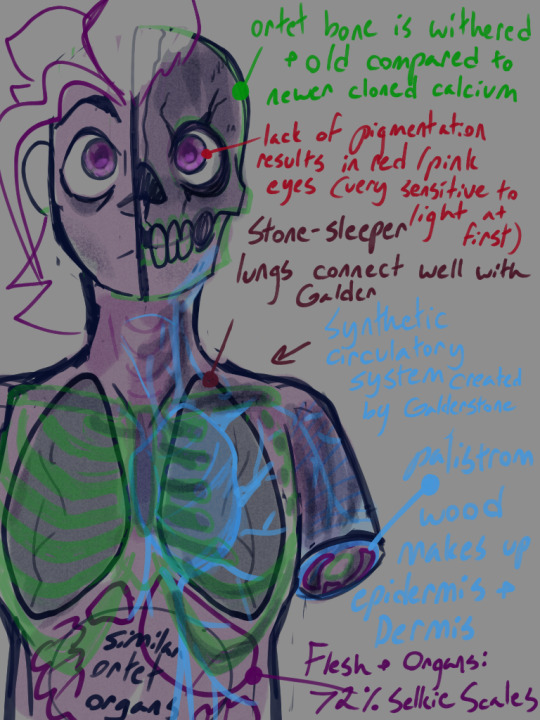
[ ^ Basic ideas ]
Lets talk about anatomy!
From what i can tell from the grim walker ingredient book they have some pretty ... interesting ingredients...
GALDORSTONE:
Heart and Power apparently. What i can make of this is that the Galderstone not only powers and animates the non-organic materials but acts as a circulatory system, flowing blood and nutrients to keep the body stable by creating magical pulses of pressure that makes the blood flow. Blood is kind of ideal for homeostasis and living and om pretty sure we've seen hunter bleed at least once... Perhaps the Galderston can create an artificial vascular system to carry oxygen, magic, and nutrients throughout the growing body instead of just making veins from scratch. I want to say the Galderstone can generate energy for the grimwalker but that would mean they wouldn't need to eat, and I don't think that's true. I think its main purpose is just activate the magic materials and is like the generator to a car, keeping it running. If the Galderstone were to break or fail, the grimwalker probably come unglued and fall apart to its components (which would be pretty horrifying)
ORTET BONE:
Very key component! The ortet bone kind of helps form the blueprint for the species of the grimwalker, as well as supplying blood, a skeletal system, and components of DNA. The most basic definition of the word ORTET is as follows: the original plant from which the members of a clone have descended. Fun fact: since were using cloning terms, Hunter is to Caleb as Ramet is to Ortet (Ramet is an individual clone) I did research for cloning and as it turns out you kinda need a complete genome for cloning but for bullshitting reasons (which will be explained) we can clone with incomplete DNA and make synthetic dna from scratch! I hypothesis that the reason grims can look different from the ortet instead of just straight carbon copies is due to the bone that is used and how much of i there is. Like example a grimwalker made using just a toe phalange is going to look A LOT less like the ortet compared to a grimwalker made from something like the cranium and bigger bones and such. Basically smaller bones dont carry as much dna info and leads for room to fill in the blanks. Sadly this means alot of Grimwalkers had A LOT of health problems (this can range anywhere from immune system problems to liver failure which is quiet typical in clones, that and it is often that clones appear different from the ortet due to enviromental factors and influences)
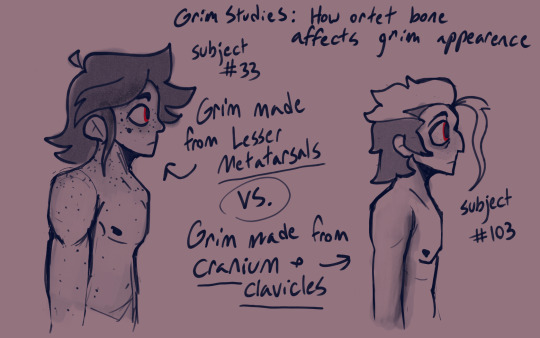
[ As the image above shows, subject #103 has a very close resemblance to the ortet due to the bones that are used ] There are pros and cons to using bones! Pros being that they can hold DNA for much longer than tissue, but the thing is bones can degrade really easy if not preserved, and i don't think belos had a bottle of hydrogen peroxide laying around that he could dunk Caleb in, so let's just assume he made sure his brother's corpse was well cleaned and kept. Biggest con is the human body only has so many bones (about 206) I believe that the reason Grimwalker can generate organs is by using the ortet and making the stem cells created from bone marrow. Stem cells are very important because they can turn into different types of cells like blood and tissue cells as well as repair tissue. I believe the process of growing grimwalkers is kind of like "Self-renewal" the process in which stem cells divide and make more of the body
STONESLEEPER LUNGS:
Im just gonna assume stone sleeper had very small lungs because aint no way those t rex lungs fit in a teenage boy. I originally thought The reason that Grimwalkers can stay underground for so long is because the lungs, similar to how a stonesleeper hibernates for centuries (kind of like how wood frogs can basically cryo-hibernate) by petrifying but a grimwalker IS growing and therefore needs resources to grow, like how a baby does in the womb. So it has to be actively getting said resources so it cant be petrified. I now think the reason that grimwalkers have these lungs is because theyre easily compatible to the galderstone, which needs oxygen for the blood and that they can be easily harvested and stored in stone form. But that does give room for cool adaptations like self-petrification! (which i will get into next time :D )
PALISTROM WOOD:
Ok its says that the wood is used for keratin, which is a fiberous protein which can make all kinds of things like scales, hair, nails, feathers, horns, claws, hooves, and skin! And since its also a plant means it can grow 4 times as fast as normal keratin can! This explains why hunters hair grew so ridiculously fast in season 3, was because his hair can produce its own carbohydrates and nutrients on its own... This means his skin and surface wounds can heal quite fast! (down side is it might give him something similar to PSS (Peeling Skin Syndrome ) ...) I think Palisman is very important becasue of several reason! 1 Like palisman, it can "animate" if you will, more or less help pull off the illusion that he is alive. 2 Like mentioned before, Grimwalkers need nutrients to grow and I believe the palistrom wood aids in that! Using a process called cellular diffusion, the grimwalker can take in nutrients from the ground around them (which i theorize to be highly fertilized) through THEIR SKIN! and into the veins and flesh of the grims 3 I believe that in the process of forming, the galderstone "activates" the palistrom wood, forming into skin or hair but this process of rapid growth leaves the skin all undone and fragile because a proper cutaneous barrier was not formed yet (which is useful for being malleable. This is why Hunter's ears are so 1 .god blessed big because they are fake and molded to look like that. Its also why The grimwalker Belos possessed fell apart so easily, like he said "It wasnt ready")
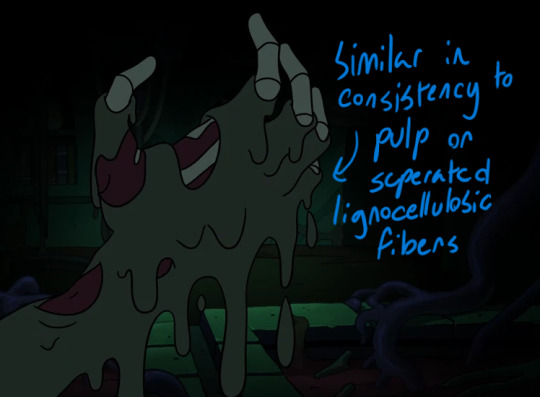
SELKIEDOMUS SCALES:
This one kind of confused me because... well why do we need the seal flesh when the ortet can just regenerate it?? I think its kind of like the stuffing if you will, it also speeds up the process of producing flesh by a lot! Especially if you want to make grown grimwalkers! Im thinking that Grimwalkers don't have a set "age" theyre just as big as however many materials they are given to work with. Even though the book says they can start as babies, if you look closely there is a check mark towards the more adolescent figure, so im thinking that they are not ready to be unearthed until they reach a certain growth ima guess around the age of over 10-ish?? We don't know how young Hunter was pulled out of the floor but it seems like he was fairly young, or atleast younger. This means while Hunter appears to be 16, he might have only been living for around 5 years or so.

Now typically normal seals have a lot of blubber which is a thick layer of fat, also called adipose tissue, directly under the skin of a marine mammals. Its used for insulation. The thing is tho, it says Selkiedomus Scales, not flesh... Dont worry there are mammals that have scales like Pangolins but i dont know if these scales are like thick plated or small and stretchy. Magic bullshitting time, Im goin to assume Selkiedomus scales refers to a layer of scale-like flesh that protect the creature from boiling but is also highly malleable and easy to work with. Maybe the reason they can withstand such heat is due to unsaturated bonds of butadiene molecules mixed into the blubber that are highly heat resistant Selkie domus flesh is molded and into the relative shape of desired body and using the DNA of the ortet the flesh is reshaped and reused into the desired muscles shapes. The vascular system created by the galderstone spreads throughout the flesh and binds with it. healing together and becoming flesh, kind of like a speed up version of skin graft maturation! This is useful for growing them quickly because they don't have to grow an entire adult body from scratch so this speed up the process by eeeerrm 20 years or so lol
Thats only the basics for now, sooner or later i shall get into the more fun stuff, like adaptaions of Grim walker, the growing process, ad more!
Hope you guys enjoyed my ideas, if i got anything incorrect let me know, my research isnt exremly searched through.
last question ill leave you all with, it kind of stumped me while i was working...

i have a theory but i wanna know your thoughts...
(i worked hard on all this btw, i really hope people read it lol /lh.)
#the owl house#toh#toh hunter#hunter toh#caleb wittebane#philip wittebane#emperor belos#grimwalker#golden guard#how tf do you draw a nipple#ima gonna sleep now...
353 notes
·
View notes
Text
Research Tips for Writing Your Book
Are you diving into the exciting world of writing and researching for your book project? Here's what you need to know to make your research journey a success:
Define Your Purpose: Before diving into research, have a clear understanding of your book's purpose and goals. Know the themes you want to explore and the message you wish to convey. This will give your research a focused direction.
Create a Research Plan: Outline the specific areas you need to research, set milestones, and establish deadlines. A well-structured research plan keeps you on track and helps you manage your time efficiently.
Use Multiple Sources: Diversify your sources. Books, academic papers, interviews, and digital resources each offer unique perspectives and insights. This diversity enriches your understanding and adds depth to your writing.
Organize Your Notes: Keep your research notes well-organized. Consider using digital tools like note-taking apps or physical notebooks with labeled sections for different topics. Efficient organization will save you time and effort later.
Fact-Check: Ensure the accuracy of your research. Verify any details that are crucial to your story or argument. Misinformation can erode your credibility and disrupt the reader's immersion.
Cite Sources Properly: Keep meticulous records of your sources and be diligent about citations. Use a recognized citation style (e.g., APA, MLA, Chicago) to give credit to the authors and avoid plagiarism.
Interview Experts: Reach out to experts or people with firsthand knowledge relevant to your topic. Interviews can provide you with valuable insights, real-life experiences, and unique anecdotes to enhance your book.
Visit Relevant Places: If your book is set in a particular location, consider visiting it if possible. Experiencing the environment firsthand can help you capture its atmosphere, culture, and nuances more authentically.
Take Breaks: Research can be mentally taxing. Don't forget to take breaks to recharge and maintain a fresh perspective. Stepping away from your work can also lead to new insights and ideas.
Stay Open-Minded: Be open to unexpected discoveries during your research. Sometimes, the most profound insights come from unrelated sources or tangential information that you stumble upon while researching.
Keep a Journal: Maintain a research journal where you can jot down notes, ideas, and thoughts as they occur. This journal can serve as a valuable resource when you're writing your book.
Join Writing Communities: Connect with other writers in person or online. They can offer guidance, share their experiences, and provide emotional support when you face challenges during the research and writing process.
Revise and Refine: Don't think of research as a one-time activity. Continuously revisit and refine your research as your book evolves. New ideas or directions may emerge, and you may need to adjust your research accordingly.
Respect Copyright Laws: Understand the copyright laws applicable to your research. Ensure you have the rights to use specific materials, especially if you plan to incorporate them into your book. Obtaining permissions or licensing may be necessary.
Balance Research and Writing: While research is crucial, there comes a point where you must transition from research to writing. Avoid getting stuck in a perpetual research phase. Once you have enough information to start, begin writing and integrate research as needed in your work.
Remember that your research phase is an integral part of the creative process. It's where the foundation of your book is built, and it can be a fascinating journey in itself.But keep in mind, as you're writing your first draft, you can never know everything, never research everything. A second opinion is always good, and for that, you can ask friends, family, or even me on this blog.

#writing#writing advice#writers block#just writer things#creative writing#fanfiction writing#writing motivation#writeblr#original writing#writing reference#writing tips#writers on tumblr#writing resources#writing tip#writing encouragement#writblr#writing community#writers#world building#point of view#editing#character creation#dialogue#mine.#words
733 notes
·
View notes
Text
Genshin Impact: Curiosity Blessed the Cat
Summary: In which Alhaitham meets an academic rival worthy of his attention. (Or the reader wants to find their way back home, the old-fashioned way)
Pairing: Alhaitham x Neutral! Creator! Reader!
Note: Slight SAGAU themes, y'know, gold blood and worship.
Warning: Mentions of blood

"Did you hear? The new kid scored incredibly high on the Haravatat entrance exam and was immediately accepted into our Akademiya."
"They also seem to be quite knowledgeable despite coming from Liyue Harbour. Perhaps they were a merchant."
"It's not just their score, but also their creativity and feasibility in the essay portion that has impressed other scholars and professors. The higher-ups are saying that it's the birth of another talent like Alhaitham and Miss Lisa!"
Alhaitham strategically chose to ignore the pointed looks and the scattered conversations around him.
It's meaningless to listen to anyway.
Besides, this book in front of him was much more intriguing than some new student. In fact, he spent most of his days in the library, surrounded by ancient texts and scholarly articles rather than people.
Luckily, the librarian silenced them with a pointed glare, and peace was restored once again.
However, while he was lost in thought, a burst of whispers brought him back to the present. He begrudgingly looked in the same direction as others, and noticed a new face in the library.
"It's the new Liyue student."
Alhaitham rolled his eyes at his fellow classmates. But just as he was about to return to reading his book, the librarian was walking towards him with the new student.
"These shelves store academic journals of various topics, but for studies on engineering, astronomy and chemistry, those shelves contain what you are looking for."
"Thank you."
When the new student walked past his table and towards the large shelves, Alhaitham slowly became amused by the sight.
Compared to the research journals and published articles, the new student seemed small in comparison. Though he was slightly impressed (or even doubtful) that a person could read, or even understand the sheer number of research material they were collecting in their arms.
"Hello, do you mind if I sit here?" Alhaitham nods solemnly without another word, and they sit down diagonally from him with their stack of books.
"Thank you."
It was then did Alhaitham noticed that there were multiple languages in that one stack.
Oh? Do they understand them all?
It took one full day at the library for him to learn that the new student is quite interesting.
Always reading books that nobody else seemed interested in and their grasp of the languages was impressive. He could read their translated notes from a glance.
When they finally finished their pile of research material, they unexpectantly let out a sigh.
"Damn, they don't have what I was looking for." They murmured in disappointment before stretching.
Alhaitham blinked in surprise behind his book.
What were they looking for? From his knowledge, the Akademiya has the largest collection of knowledge and research, despite this, they were unable to find what they were looking for?
"Hello, sorry to disturb you." Alhaitham looks up from his book slowly and sees a sheepish smile.
"Do you mind helping me put some books back? My legs have gotten stiff."
"Alright."
So the two returned the books back to their original position in a quick and organized manner.
"Thank you. My name is (Y/N) by the way, nice to meet you." They held out a hand for a handshake.
"Alhaitham." He introduced himself briefly, and shook their hand.
"Then, I'll see you around Alhaitham."
Alhaitham watched them leave, and suddenly felt his vision pulse by his shoulder.
Oh? Why is that? It was as if it was telling them to leave the library.
Curious, he picked up his vision and inspected it, but after a few minutes, it returned to normal as if nothing happened.
But Alhaitham knew it had something to do with (Y/N).
Alhaitham was surprised when he saw them the next day in his class. They introduced themselves as a traveler and a previous merchant who dealt with rare and exotic items.
The other too seemed surprised to see him, but offered a polite smile in response.
Before he knew it, (Y/N) became his seatmate and naturally, whispers follow.
Especially since (Y/N) seemed to do exceptionally well in their academics, so much so that Alhaitham was suspicious and annoyed at how much others were comparing them.
"(Y/N)." They look up in surprise.
"Oh, Alhaitham. How are you?"
"Are you trying to graduate early?" Alhaitham asks bluntly because at the rate they are succeeding in their academics, they may as well be.
"Yes I am actually."
"Why?"
"Well, I want to gain access to more records, the general library doesn't have what I want. I believe the easiest and more efficient way is to gain merits and succeed in academics."
That certainly makes more sense, and proves one of his predictions.
"And what exactly are you looking for?"
"Hmm, I want to see if there was a way to utilize the power of visions and help people travel to countries faster."
Alhaitham knew there was more to that, or else, why would they also look into astronomy?
"I also want to see if I can go home." Another murmur, and Alhaitham felt a chill go down his spine, his vision pulsing stronger this time.
"What?"
"Oh would you look at that? I have to go. I'll see you around Alhaitham."
"Wait-"
(Y/N) was gone in a flash, leaving behind scattered notes.
When Alhaitham picked up one, he was surprised to see notes on the Creator, the almighty being that created their world and one worthy of worship and loyalty.
But this was something everyone knows by heart, why would a student like (Y/N) have to learn, much less note about such an obvious thing?
Alhaitham immediately left to search for (Y/N), his curiosity got the best of him.
From that moment on, Alhaitham became even more fascinated by the (Y/N), trying to learn everything he could about them. However, who knew that in the process that he would find himself becoming more ambitious and competitive?
Always trying to beat them in academics and finding ways to make them reveal their secret.
Especially as to why his vision is reacting to them so.
But until then, he has grown to enjoy their presence and curious nature, questioning everything around them, and suggesting ideas he never thought of.
Alhaitham realized that they were truly a scholar in their own right, someone who is not corrupted or power-hungry, but someone...perhaps similar to him.
Graceful, kind, knowledgeable and hard-working, this is who (Y/N) was like from the beginning to the present.
They may not be a vision user, but still understands quite a bit about visions. As such, when Alhaitham asked them about his pulsing vision, they were curious about it too.
"May I inspect it?"
Alhaitham was surprised at how easily he agreed to their request, after all, the act of touching another's vision meant you had immense trust for them.
The moment they touched it, Alhaitham felt warm, as if he was in a mother's embrace.
Alhaitham took a step back instinctively at the strange feeling and almost tripped over a long vine that grew from his vision, but a hand grabbed onto his wrist to stabilize him.
"Oh crap!" (Y/N) is not one to swear, but when they do, Alhaitham knew there must be a reason.
(Y/N) quickly let go of his wrist, and before they could cover it, Alhaitham saw something extraordinary.
Gold blood.
It seems that they injured themselves on the same vine.
Regardless, only the Creator would have gold blood!
Everything started to snap together in place.
"You are-"
Without another moment of hesitation, their hand covered his mouth before pushing him against the wall. Their eyes darted around nervously and then laughed nervously at the bewildered and flushed faces around them.
Their graceful image was suddenly replaced with a flustered and panicked one.
Ah, this was their secret.
"You can't just say my crush's name out loud. That's so embarrassing!"
What? Why are they hiding?
Alhaitham saw their hand, that should have been bleeding, but is not. It was completely healed.
Before Alhaitham could say anything, they whispered beside his ear.
"I don't know what you saw, but keep it a secret."
Alhaitham felt his vision pulse again, and he swallowed slowly, before nodding. He realized it was an order from the Creator.
It had to be, or else why would his vision and himself, be so willing to listen to their request?
They slowly let him go before returning his vision, dragging him away and sprinting down to the library.
This time, they led the way while his mind is drawing many conclusions at once.
Then he flushed in embarrassment.
This person...is the Creator! And he followed them for weeks just to satisfy his curiosity!
How would they ever look at him again if they found out?
And he's holding their hand.
He is not worthy of such a privilege.
Despite the chaos in his mind, he doesn't show it even as the duo found themselves in the silent library. They walked between two rows of tall ancient books.
When they let go of his hand, he felt something left him briefly, and it wasn't the greatest feeling in the world.
"Before you make conclusions, I will ask you to keep everything you saw a secret." Alhaitham blinked as he processed the implications behind their words.
"There is only one person that has golden blood, and healing powers of that extent." He remembers what the stories told.
"The Creator." They flinched, but didn't back down, in fact, they crossed their arms. With just one look at their eyes was enough to almost send Alhaitham to his knees.
"That is quite a prediction. Without any evidence, Alhaitham?" Alhaitham felt his breath quicken as a giant pressure descended on him. His vision is pulsing too quickly, as if panicking.
"No, your highness. I could never." He responded robotically as he knelt in their presence.
"Highness? Where did you get that from? And why are you kneeing, get up." Two hands held his shoulders, sending shivers down his spine that jolted him awake, and made him reached out to hold hers.
"You are the Creator." He states firmly, without any doubt.
"I'm not. And you can be committing a crime right now-"
If that's what it took, then Alhaitham will bear the consequences.
With a quick movement, his nail scratched the skin of their hand, and before they could cover it, Alhaitham stopped them and watched as gold appeared for just a second before disappearing as if it never existed.
That was all he needed before he knelt again.
"Please punish me as you see fit your highness."
They're the Creator.
The saviour of this world.
Was that why they were conducting research? To find a logical way to save Teyvat? Was there a danger?
Also...did they want to go home?
Ha.
"Alhaitham, stop this. I don't need you to act any different than before." They groaned a bit before deciding to accept their fate.
Why are they hiding the fact that they're the Creator?
No, the real question is, why is he questioning their requests? As a devout believer, he should not doubt them at all.
And since he did, he is ready to take on any punishment.
He takes their hand and places a gentle kiss, watching them turn into a stuttering mess.
A reward for his curiosity and pursuit of knowledge.
Just how many people know that the very deity they worship is right beside them?
"What are you-"
"Your highness, please command me as you see fit."
The other sighs and rubs their temples, muttering something about how "Zhongli" was like this too, and how they shouldn't have let their curiosity get the best of them. Alhaitham furrowed his eyes in the mention of another name and wondered if this was perhaps their friend in Liyue.
"One, don't act any different than before with me. Two, keep my identity a secret. Three, don't question nor interfere with my goals. That's an order."
Alhaitham does not understand why the Creator is adamant in hiding their identity or living like a normal person, but he will obey their wishes. However, there is one thing he will not allow.
"I will heed your order."
That is to allow the Creator to leave, and "go home".
#alhaitham#al haitam x reader#genshin#genshin impact#genshin imagines#genshin x reader#genshin sagau#gn reader#gn y/n#genshin x you#al haitham#sumeru#genshin fluff
1K notes
·
View notes
Text
DPxDC Prompt where no one is sure what exactly happened to Amity Park. One day the town was simply destroyed, leaving no identifiable bodies but plenty of carnage to mark the occasion. It's a haunting sight, the streets quiet, already being taken over by plants.
The bats find a destroyed lab with what must have been a house overtop of it. The place appears to have been ransacked, with any worthwhile materials and research taken.
That is, except for a few battered journals.
The books are found inside a section of cracked wall, the pages mercifully spared from the wind and weather. They're just ordinary journals, the handwriting inside a messy scrawl with doodles interspersed in the margins.
It's practically the only lead they have to go on, other than a strange sample resembling Lazarus water and a few odds and ends found throughout the town.
Tim is tasked with deciphering the journals, reading through them to find out any information he can. It's a task that he throws himself into readily, expecting information regarding the work done in the lab beneath the house.
Tim is instead surprised to find the thoughts of a young teenage boy.
Danny Fenton, the name scrawled on the front of each journal. The pages start out mundane, detailing a sister purchasing the journal for the boy, and the events of a fun summer between friends. Nothing out of the ordinary.
That is until August 2nd.
Talk of a portal. Of ghosts and the work of mad scientists. Of stepping inside the portal on that fateful August 2nd, only to come out different-- changed-- dead, in some way.
Tim isn't sure what to make of the journals as they continue, the mundane turning to the extraordinary as Danny Fenton grows into his new skin and learns to fight. One ghost boy against a hundred different enemies-- his parents mentioned with fear, more than anything else.
He thinks it might be fiction-- hopes it is-- but something in the writing rings more truthful than Tim would like.
Perhaps it's the pages occasionally stained with red and green smears.
He keeps reading, becoming absorbed with tales of trips through a realm of green, of long-dead monarchs raising swords against the living-- of Danny Fenton and his friends sticking through it all, the fatigue of that fight evident in the sloppy scrawl of his writing.
Years pass in the journals. The boy's almost seventeen, he notes in one passage-- Tim's age-- and still he carries this burden. Tim can't help but admire him.
His family tries to get him to sleep-- to put down the journals-- but Tim needs to know how the story ends. Where it ends.
An organization keeps cropping up in Danny's writing, a certain GIW. The concern for them grows with each passage, and by the time Danny is seventeen his entries are sparse and few between. Mentions of an occupation-- of the city changing-- of Danny not knowing how much longer he can hide.
The last entry is a hurried thing. The words a messy scribble, each one more haunting than the last:
"I think they found me out. I'm sorry, I tried. Sam, Tuck, Jazz, if you find this, don't look for me."
Tim frantically flips through each page, desperately hoping for something more. There's nothing. It's the last message ever written by this Danny Fenton, bitter and resigned.
Tim still doesn't know if he can trust the words written in the journals-- doesn't know if he can trust Danny. All he knows is that of the names listed in the last entry, of the people told not to look for him, Tim isn't one of them.
He's done more foolish things before.
1K notes
·
View notes
Text
just some lauren quotes
“The comedy is what separates ‘Witcher’ from a lot of other fantasy material like ‘Game of Thrones.’ It comes from an organic place which is that Andrzej Sapkowski is Polish, and he was telling me a lot about what it was like to grow up in Poland at a time when there country was being constantly taken over by other countries, there was a lot of political turmoil, a lot of people died, a lot of conflict, and yet you still have to get up every day and put one foot in front of the other and continue on with your life. He said, ‘How do people deal with tragedy? They laugh.’ Bringing that aspect into a fantasy show is really fresh and had never really been done before. It was really important to me to keep in that in, and I hope the fans appreciate it.”
"Yes, he’s a consultant on the show. I met with him very early in Poland when I came on to adapt and really dug into his life and why he was writing these short stories in the first place, what drew him to the character and how his own experiences in Poland influenced how he wrote it."
"It’s interesting because the women in the books that [Andrzej] Sapkowski wrote are very, very strong and very independent. It’s actually one of the first things that I asked him about, when I met him. The women were much more powerful, much more centered, and much more independent than I ever could have imagined, for a fantasy book from the 1980s, and Sapkowski said, “I just based them on the women that I knew.” Especially coming from Poland, and Central Europe, when he grew up, a lot of the men were killed in war and conflict, and women really had to be at the forefront, not just of their families, but of their communities and the workplace. These were the women that he knew, so they’re the women he wrote, and that’s one of the big things that I tried to honor."
"You know, when I first spoke to Andrzej Sapkowski, the author of the books, I actually, I told him, I was actually surprised by the strength of the women in these books and he pointed, actually he said something fascinating; that I’ve never met his mother. He basically explained to me the role of women in post-war Poland and said that most of the men had died off in conflict and women really became, not just the centre of the family, but the centre of society, of culture and of the workplace. And so, you know, it’s interesting because people ask me about the female characters a lot and the complications of them, but it’s really what real women are like anyway, right? I mean it’s strong in some circumstances, vulnerable in others, occasionally bold, occasionally bitchy, occasionally silent. It really is, to me, what I wanted to capture is these women before they were seen through the lens of anyone else."
"I met him really early on in the process. I went to Poland on a research trip and he and I had an amazing lunch and just sort of sat down. We didn't even talk about The Witcher for a while. I just kind of wanted to know what made him tick as a writer, you know. So it was a great lunch between two writers and I just wanted to understand why he wrote this book, what he put of himself in it, what he put of his travels in it. He's very famous. He talks a lot about his international travels and those are really the things that inform these stories."
"When I spoke with Sapkowski, we talked about what his books meant to him — he gave me a fair share of important points, but the thing that resonated most with me is this struggle between humans and non-humans. This can be extrapolated into our current real world in dozens of ways: immigration, racism, sexism, xenophobia, class warfare, yes. But it’s also as simple as old playground feelings of not belonging, feeling on the outside, feeling “other.” It’s something every single person can relate to, in one way or another. It’s really important, in a world of dragons and monsters and elves, that we keep the emotional touchstones of the show really relatable, so we’ll be continuing to explore it a lot in season two."
57 notes
·
View notes
Text
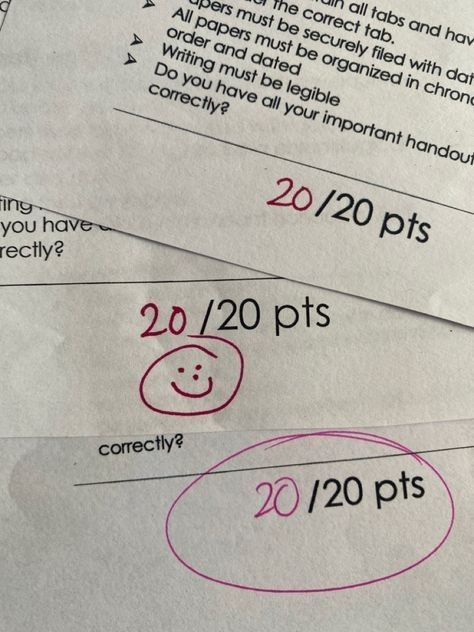

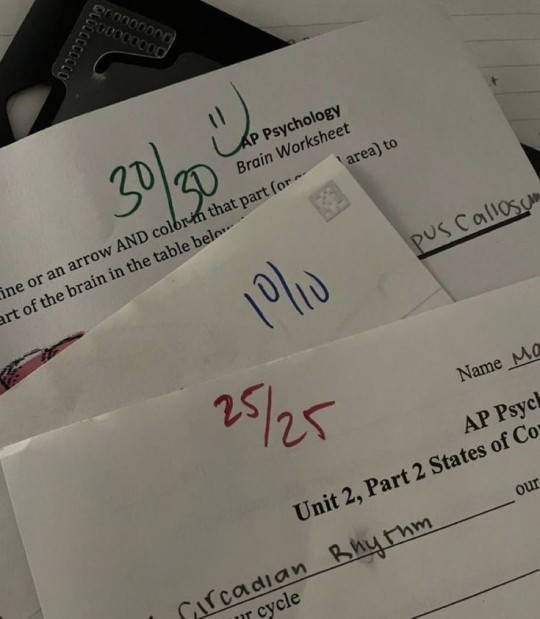
❥﹒♡﹒☕﹒ 𝗽𝗿𝗼 𝘁𝗶𝗽𝘀 𝘁𝗼 𝗴𝗲𝘁 𝘀𝘁𝗿𝗮𝗶𝗴𝗵𝘁 𝗮'𝘀
having good grades doesn't necessarily mean you're smart, a test or exam can't always determine someone's intelligence, but it's academic validation we crave, right? so here are some tips thanks to which you will get straight a's.
𝟭. understand what the professor wants ( 🪼 )
learning the entire book by heart is tiring and basically useless. we take our education seriously, but it's impossible to know everything about everything, so inevitably there will be topics we can gloss over. check old tests, listen to the teacher during the lecture, talk to students who have already attended the course and passed the exam. understand which aspects your professor particularly cares about and concentrate on those, your exam will certainly go well.
𝟮. strengthen your memorization ( 🦋 )
very often the amount of things to study is just too much and, even though you spend all day in the library rereading the topics again and again, you feel that it is not enough. you get confused, you forget steps, you get lost in the labyrinth of the subject. investing in understanding your form of memorization will benefit you in the long run. identify your type of memory (spatial, photographic, echoic, etc.) and focus on how to improve it. having a good memory will make your studying for the exam much faster and easier.
𝟯. pay attention in class ( 🫧 )
attend all lectures and take notes. much of your studying comes from your professor's lecture. underline the important things in your textbook, carefully follow their speech and - if there are any - their powerpoint slides, writing only the things that the teacher adds and which are not written either in the book or in the extra material, if necessary, record the lesson so you can listen to it again at a later time.
𝟰. organize your notes the same day ( 🧃 )
when i take notes in class i write badly and quickly to keep up with the teacher, shortening words or omitting passages. by reorganizing your notes that same evening (at most the next day, if you really don't have time) you can revise your work when the lesson is still fresh in your mind; if you wait too long, you will forget most of the things and you will find yourself staring blankly at pages of notes which, at that point, will seem more like hieroglyphics to you than anything else.
𝟱. use ai responsibly ( 🪴 )
artificial intelligence is everywhere nowadays and why not use it to our advantage? of course i'm not suggesting that you let an ai take care of all your tests and essays, it wouldn't make sense, however very often it helped me make a list of key points to develop in a research paper, or gave me excellent ideas and insights for projects. they can also be used to create flashcards, summarize and simplify articles, or create practice tests based on the material you will have to study.
𝟲. delve deeper into your “whys” ( 🌾 )
sometimes when i study i stare into space and wonder why i am studying something that seems completely irrelevant to my path. i'm sure it happens to you too, don't ignore this feeling. don't be afraid to explore themes and topics that aren't clear to you, if two statements seem contradictory ask yourself why, if you don't understand some passages, don't be afraid to ask a question. we study for ourselves, before studying to graduate, to work. there is no shame in not understanding, your intelligence lies in striving to clarify what seems obscure.
#school#note taking#college#studyinspo#academia#education#university#study tips#study inspiration#study notes#study motivation#student#study aesthetic#study blog#studyblr#studyspo#pro tips to get straight a's#straight a student#straight a's#architecture#architecture student#architecture studyblr#university life#univeristy#uni life
236 notes
·
View notes
Note
Do you know what season each of the books takes place in? Also, when does Grim start his own club? Was that part of a vignette or was it part of the main story? I can't really find any information about it on the wiki so...

Based on context clues:
Autumn — prologue and book 1 (September; Yana confirms this is the beginning of the school year), book 2 (probably October, since this is when homecoming games usually are held irl), book 3 (most likely November, as this is when most fall semester finals would be administered + winter break is shortly after)
Winter — book 4 (winter break, probably mid-December to early January to cover the span of the holidays), book 5 (opens on the new year and there’s roughly a month of training), book 6 (happens shortly after book 5 and lasts a few days total)
Spring — probably book 7 (takes place an unspecified amount of time after book 6, but characters express surprise when Malleus’s bad mood makes it snow, so the winter-time weather must be over by now); it is explicitly stated that 6 months have passed)
Summer — technically, the main story’s timeline has not even hit summer yet (otherwise the students would be going home for vacation)
As for Grim and his extracurricular (Gourmet Foodies Society/Gastronomy Research Club), it's definitely not explored in the main story since it holds no relevance there. The founding of it isn't really covered in the current vignettes or bonus materials either, it's just casually mentioned every now and again, such as in Ortho's College Gear vignette (where Ortho is exploring potential clubs to join). Since Ortho's College Gear vignette is tied to post-book 6 events, Grim must have founded/joined the Gastronomy Club before this point in time. Most schools irl tend to have club fairs to promote their extracurricular organizations early in the semester to get new members, so... My guess is Grim likely got his start in the club all the way back in early autumn, just off-screen/not explicitly shown to us.
#twst#twisted wonderland#disney twisted wonderland#disney twst#Malleus Draconia#Grim#notes from the writing raven#question#Ortho Shroud#book 6 spoilers
160 notes
·
View notes
Text
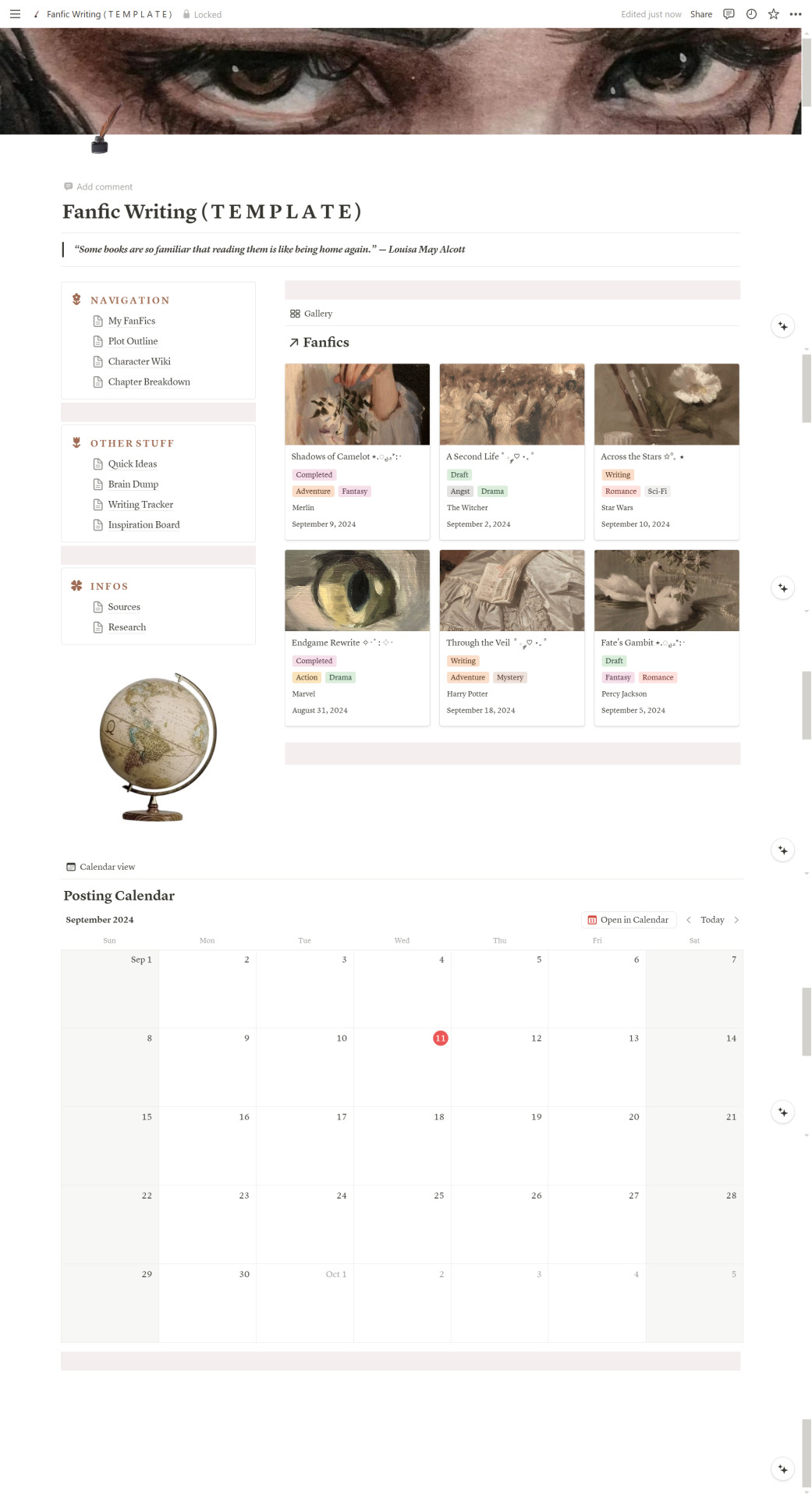
Notion Fanfics Writing Planner
This fanfiction writing template is designed to help you stay organized while nurturing creativity. With a vintage-inspired aesthetic, it offers a comprehensive and structured workspace tailored specifically for fanfic writers.
Features:
* Navigation:
- My Fanfics: Keep track of all your stories in one place with an organized table for titles, fandoms, genres, word counts, and more.
- Plot Outline: Plan out your entire story with detailed plot points and scene breakdowns to ensure a cohesive narrative.
- Character Wiki: A dedicated space to flesh out character profiles, relationships, and arcs.
- Chapter Breakdown: Easily outline and manage each chapter, helping you stay on track while writing.
* Other Tools:
- Quick Ideas: Jot down spontaneous ideas or plot twists to revisit later.
- Brain Dump: A space to pour out raw thoughts, concepts, or story developments without pressure.
- Writing Tracker: Track your daily word count, writing sessions, and progress toward your goals.
- Inspirational Board: Collect quotes, images, and links that inspire your writing and creativity.
* Info Section:
- Research: Organize and store all your research notes on topics like worldbuilding, character development, or specific fandom-related elements.
- Sources: Keep track of all your reference materials, whether they are books, articles, or websites.
* Dashboard:
- Posting Calendar: Plan out and track your fanfic posting schedule across various platforms.
- Links: Easily access important websites or references with a designated space for quick links.
---
#notion#notion template#digital planner#organization#planning#fanfic#fanfiction#archive of our own#writing#writers on tumblr#writeblr#writerscommunity#notion dashboard#original character#fiction#story
78 notes
·
View notes
Text

BOOK 6 TWST THINGS I GLOSSED OVER
THINGS I WANT TO SHARE (note) i'm only finding out about this now while i'm reading the masterlist here, since the wiki hasn't updated yet and i skipped book 6 in the eng game, because i used a translator to read book 6 in the jap before it came out in eng. some information are already well-known and some are things i already knew, but i decided to take note about anything i thought was noteworthy!

RIDDLE ROSEHEARTS
Chapter 66, Tower 2, Part 5 — Riddle became a dorm leader on his first year.
Chapter 66, Tower 3, Part 8 — Riddle said that he confiscated exam study guides, made by Azul, in Heartslabyul. — He thinks that Azul couldn't compete with him in terms of academics because Azul has too much on his plate, while he devotes himself in his studies.
Chapter 67, Tower 2, Part 17 — According to Leona, Riddle can cast a spell so fast and that he could lead a group and fight on the front lines with his fire power, but sees it as a double-edge sword because of his stamina and his temper but he has a confidence to be a leader.
Chapter 67, Tower 3, Part 19: PTM-456 — Riddle misses Grim
Chapter 67, Tower 3, Part 20 — He started taking special lessons when he was 3 — When his mother was pregnant, she was already preparing all necessary materials to ensure Riddle will grow up to be an exceptional mage. — Riddle is not sure whether he is a prodigy or if he earned his talents because of how he grew up. — He studied in a private school when he was young and wasn't able to skip grades despite his intelligence because it wasn't a 'norm' and his school didn't allow it. — He also said that he saw no point for him to skip grades either because he needs to be 24 years old to be a medical mage. — He originally was supposed to be a medical mage once he graduates, but he MAY be having second thoughts because he developed an interest in law after becoming a housewarden.
Chapter 67, Tower 3, Part 22 — Riddle's cape can cover two people and block a bit of light.
Chapter 69 — Riddle hasn't taken his magical device licensure exam.

LEONA KINGSCHOLAR
Chapter 66, Tower 2, Part 13 — Leona's Unique Magic: King's Roar, can turn ice to dust.
Chapter 67, Tower 2, Part 25 — Leona has a refined palate, he doesn't like dry, stale rations. — He drinks sports drink.

RUGGIE BUCCHI
Chapter 67, Tower 2, Part 21 — Leona says that he doesn't think Ruggie's magic is as good, but he's aware of what he is lacking and doesn't hesitate to use Leona to make up for it; Ruggie doesn't see it as anything shameful.

JACK HOWL
Chapter 67, Tower 2, Part 21 — Leona views Jack as someone pretentious, and says that Jack doesn't have what it takes to lead yet so Jack comes to Leona when things gets too out of hand. — Leona finds Jack's honesty adorable.

AZUL ASHENGROTTO
Chapter 66, Tower 2, Part 5 — Azul became a dorm leader at his second year.
Chapter 66, Tower 3, Part 8 — Azul considers Riddle as an academic rival. — His overall ranking often goes from top 2 to top 10 — Even after book 3, he still has his backroom 'consultations'. — Riddle said that Jade mentioned Azul goes off campus on day offs under the pretense of market research.
Chapter 67, Tower 2, Part 17 — According to Leona, Azul is a quick thinker and knows how to put himself in an advantageous position. Leona assumes Azul struggled living in land, but Leona says that Azul sees it as a strength.
Chapter 67, Tower 3, Part 17 — He (possibly with Floyd and Jade as well) were trained in Sunshine Lands (a place where a prince of Sunshine Land married a princess from the Coral Sea and was founded by the mermaid princess) and said that he couldn't find a 'catch' in the organization and he put in an application there as soon as he was accepted in Night Raven College.
Chapter 67, Tower 3, Part 20 — Azul started learning the basics of magic when he was 8, and he was taught by his mother and grandmother who were both mages. — His family was not entirely pressuring him in studies thus him being lax about it until he was in middle school.
Chapter 67, Tower 3, Part 22 — He was raised in the deep sea so his eyes could adjust to the darkness.
Chapter 67, Tower 3, Part 25 — Azul doesn't feel upset when fighting against Ortho and Idia's dreams because he knows well enough that someone has to make a sacrifice to make it come true — One of his dreams is to be a valedictorian, opening a second Mostro Lounge branch, starting a delivery business, selling tableware, running a hotel, and getting into the leisure industry.
Chapter 69 — Azul has never driven a magical wheel.

FLOYD LEECH
Chapter 67, Tower 3, Part 17 — Azul said that Floyd often forgets to take his doses to keep his human form (transfiguration potion), and says that it's normal for him to hear Floyd saying "Hey, my ears are fins again!", or "My fingers grew some webbin'!"

JAMIL VIPER
Chapter 67, Tower 2, Part 25 — Leona calls Jamil: Snake. — Jamil admits to Leona that he always judged people around him as stupid, incompetent, lazy, or good-for nothing, but says that that was just what he wants to believe. He admits he has more to grow.

VIL SCHOENHEIT (FT. ROOK)
Chapter 66, Tower 1, Part 4 — He can separate his feelings and duties as a dorm leader and his personal thoughts and emotions.
Chapter 67, Tower 1, Part 16 — When Vil first got in Night Ravel College, he started turning down long-term acting offers to focus on studies, but had to act in some plays and movies because they got sequels.
Chapter 67, Tower 1, Part 17 — Vil first met Rook on the school gardens. — Vil never gave Rook the time of his day but Rook kept reaching out to him and pointing out things Vil internally chides himself for. — He didn't catch up to what Rook talked about for five hours about his own play.
Chapter 67, Tower 1, Part 19: PTM-854 — He is curious what he would look like if he took a form of a phantom because he thinks phantoms are the manifestations of their greatest desire. — He remembers what his phantom looked like. — He admits to unconsciously thinking about beauty about being youthful and may have feared aging.
Chapter 67, Tower 1, Part 25 — Vil acknowledges that the Shroud brothers wanted 'normalcy' but was willing to destroy their dreams for his own.

ROOK HUNT
Chapter 67, Tower 1, Part 20 — Rook found the Mirror's sorting agreeable thus stayed in Savanaclaw, but thought he would learn more about 'beauty' in Pomefiore faster so he transferred. — He talked to Vil about his decision in transferring from Savanaclaw to Pomefiore, but Vil couldn't talk him out of it. — According to Vil, Rook stuck out like a sore thumb when he entered Pomefiore because his hair was long, thick, unkempt, and he also had freckles in his cheeks and nose. — He never bothered using sunscreen or skin care so his cheeks and nose were always bright red. — He would go all-over the place in sweatpants with frayed hems or jeans with torn knees, but would fix his attire a little when going to an operas and concerts with dress codes. — Vil once picked out an outfit for him because Vil believed that a beautiful stage deserves beautiful audiences.

EPEL FELMIER
Chapter 67, Tower 1, Part 19: PTM-859 — Rook said that Leona praised Epel's broom/flyting skills in the club.

GRIM
Chapter 66, Tower 3, Part 9 — Grim is 70cm. — Epel said that Ace and Deuce told him that Grim hates his nails being trimmed.
Chapter 67, Tower 1, Part 19: PTM-735 — He has long nails. — He often scratches on Heartslabyul's couches.

#twisted wonderland#twst#twst book 6#twst riddle#riddle rosehearts#twst leona#leona kingscholar#twst ruggie#ruggie bucchi#twst azul#twst jack#jack howl#azul ashengrotto#twst floyd#floyd leech#twst jamil#jamil viper#twst vil#vil schoenheit#twst rook#rook hunt#twst epel#epel felmier#twst grim#heiznx. things i want to share.
105 notes
·
View notes
Text
“and they were roommates” ; albedo & diluc

summary — what is he like as your roommate? in correlation, how does he often act around his home shared with you?
includes — albedo and diluc (w/ gender-neutral reader) ; separate
tags — fluff, domestic fluff if you squint so hard, no established relationship, some sprinkle of smau ; headcanons
note — surprise, there is no note ; masterlist

albedo, the helpful and kind roommate, also an artist and somewhat a friend
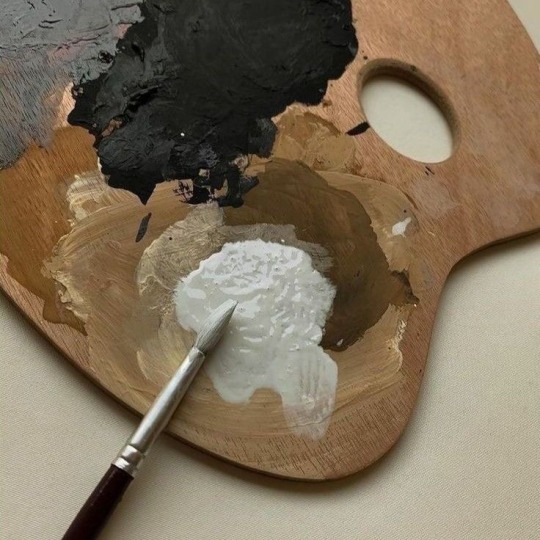
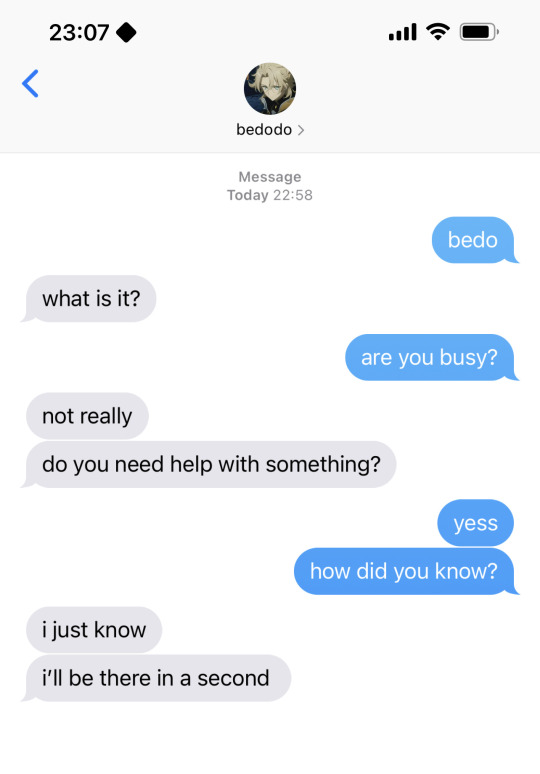
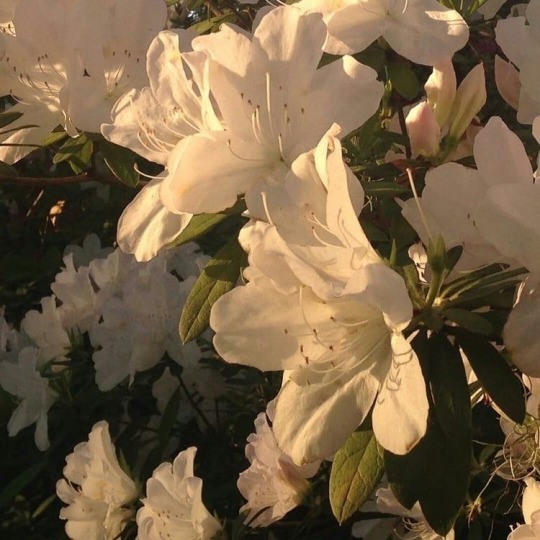
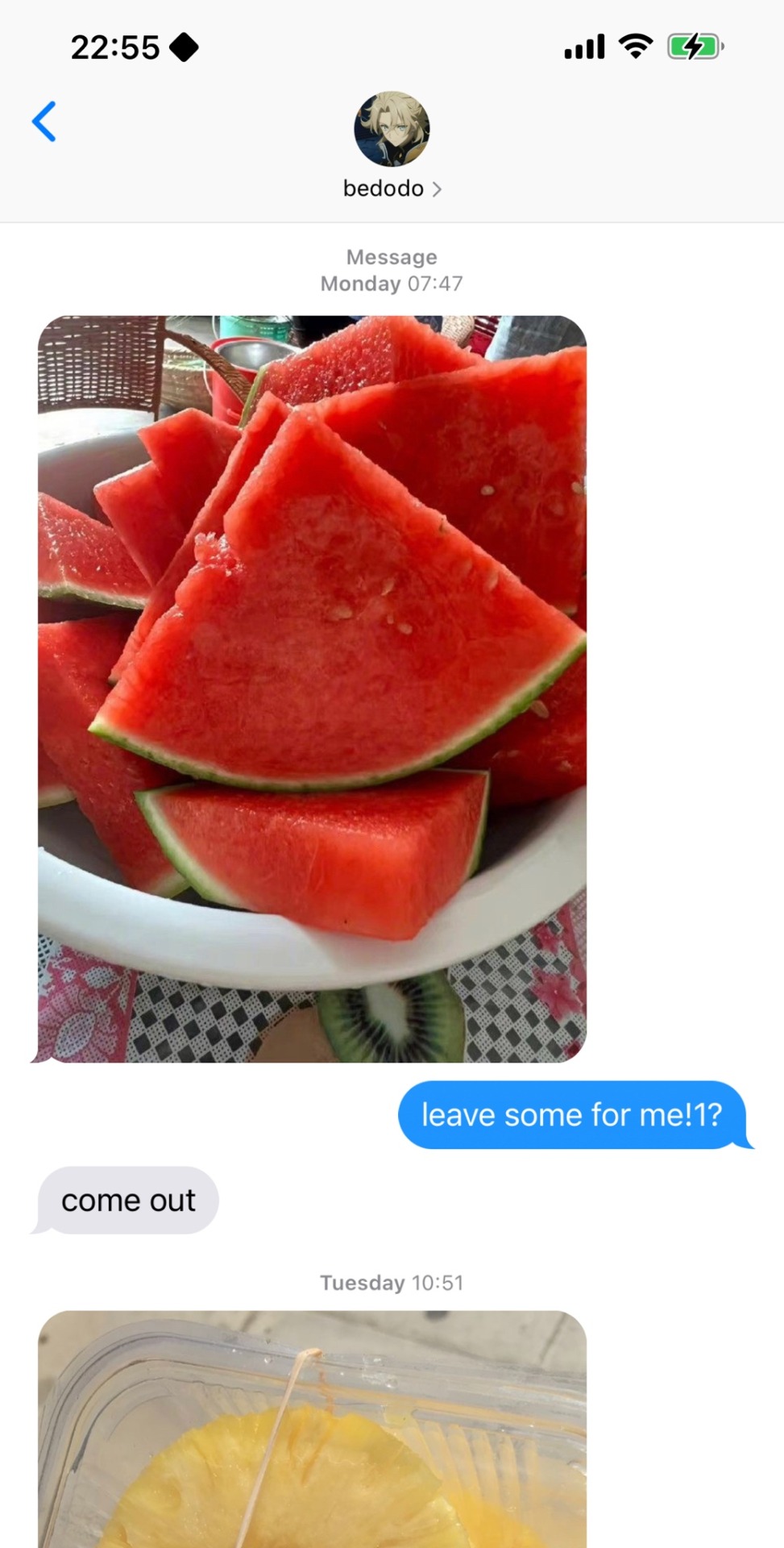


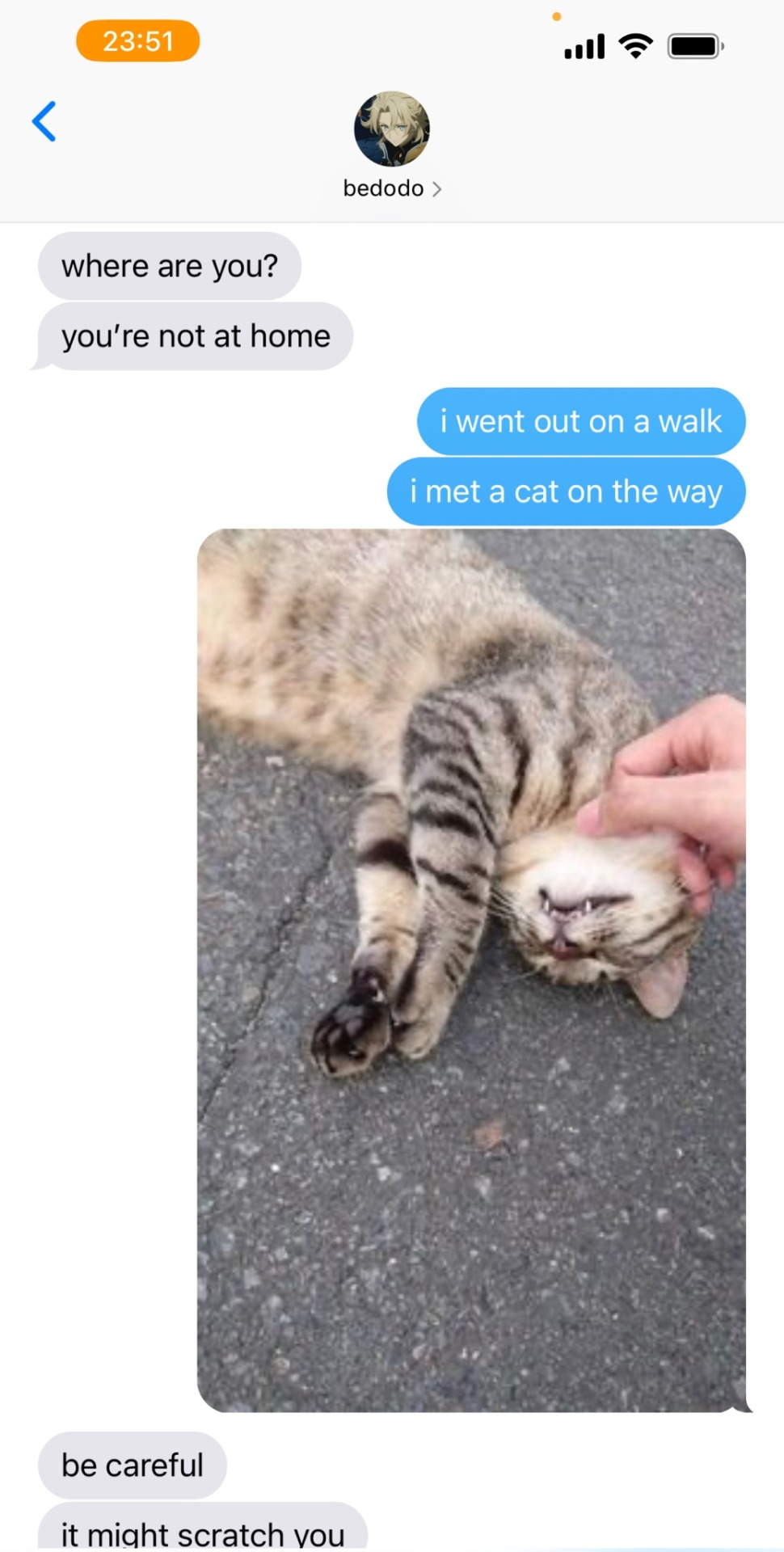
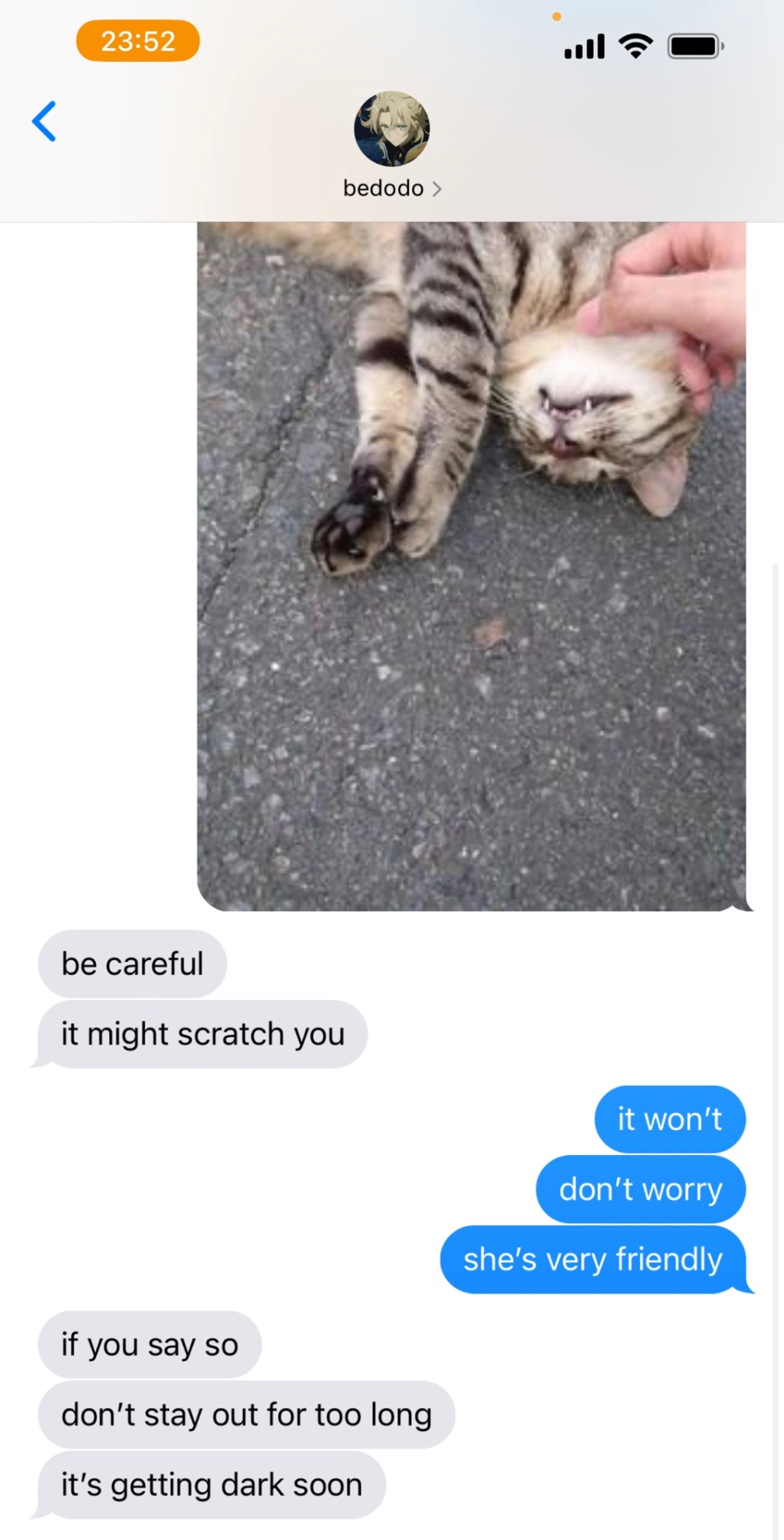
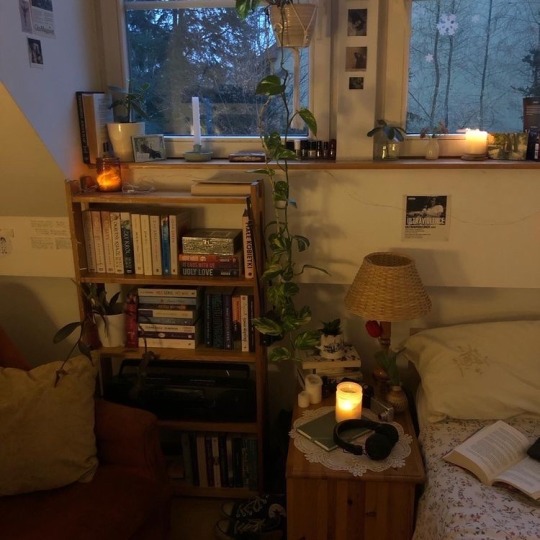
a genius, a roommate, and a friend (maybe). minds his own business and does his own things but he is willing to help you at most times, he wouldn’t mind tutoring you if you’re a student who needs guidance or wouldn’t mind fixing the pipes if ever it gets broken—i mean, that would affect him also if it breaks down as you two share the same home. he’ll figure things out on his own even if he doesn’t have that much experience with such tasks.
he’s an artist and you’ve seen some of his artworks when you pass by his open room. however, he never talked about it, his art, so if he didn’t leave his door open and if you hadn’t taken a peek inside, you wouldn’t have seen him painting—if you didn’t ask him about it, you’ll never know of it.
probably loves fruits, unsure since he never said it out loud but will always bring some home whenever he goes out—there’s always a basket of it on the table or a container in the fridge—and will even slice or peel it for you, sending you a photo and a message if you want some. you honestly don’t know how that string began but it just happened, peeling oranges for you and sharing just became a normal thing on a hot—perhaps summer—day.
he’s quiet most of the time, doesn’t talk a lot and texts from him first are not a common thing, but that doesn’t mean he’s not willing to engage in a conversation with you and you get along with him just fine. he’s not some emotionless stuck up jerk, he’s very much the opposite of that. he’s caring, gentle, and attentive. he doesn’t leave a mess around unless it’s in his room and he does his own fair share of chores.
his room is somewhat divided into two spaces: rest and work area and the latter space is always messy. cleaning it up is just futile effort as it only gets untidy afterwards. there are all kinds of items and things inside, materials for his art and work or research, expensive equipment lying around his room, and a shelf with different kinds of books. along with some of his paintings that he put up, there are also papers that he taped on the wall, ideas and reminders that he can’t afford to forget.
diluc, just your simple and average thoughtful roommate, a bartender and an old soul









god, he’s just so sweet, attentive, and caring, and if you two aren’t dating, you wish you were. he lets you borrow one of his shirts (even if you have some in your closet but his j ust smells so good and it’s also so comfortable and soft to wear), he doesn’t mind it at all as long as you don’t go digging deeper into his room—not just the clothes—and invading his personal space and overstepping your boundaries. he lets you borrow some of his things also as long as you’ll ask for permission.
he’s not much of a morning person, getting out of his bed when it’s nearly afternoon already. if ever he wakes up early, he’ll stay inside his room probably just laying on his bed and catching to more sleep or cherishing his alone time and making the most out of it, he wallows in the warmth of the sunlight that seeps into his room and lays at his floor and the silence that engulfs him—it’s just peaceful and comforting.
speaking of his room, he has a simple one, adorned with small decorations and a few framed photos, and everything is always neat and tidy. all of his things are stored where they should be. there’s nothing much to describe here except it’s clean and organized with a faint smell of his cologne. he does have a collection of vintage and old items placed around his room such as a phonograph on his table and an antique vase on the corner.
he works part-time as a bartender—from afternoon until night. that’s why he’s often out late but he tells you in advance, either through a call or text message, whatever his mood is. although it’s not everyday that he works since he’s at home on some days. during those times, he’ll be the one to cook and would do chores around the house, letting you rest instead.
he lets you try some of the drinks he made, non-alcoholic if you don’t want alcohol, and would ask for your opinion. he’ll prefer it if you’re honest—lying wouldn’t be beneficial here. but then all of the ones he makes are all good so there’s no need to fabricate and sugarcoat your words to please him.

© azullumi — do not plagiarize, copy, repost, nor translate any of my works.
#genshin impact#genshin x reader#genshin impact x reader#genshin imagines#genshin fluff#genshin headcanons#albedo x reader#albedo#albedo x you#genshin albedo#albedo headcanons#diluc x reader#diluc x you#genshin diluc#diluc#diluc headcanons#genshin x you#genshin impact fluff#azul.writes
418 notes
·
View notes
Text
More studies on Resident Evil's lore - based on the books Resident Evil Archives Vol. 1 and Vol. 2
Leon and Ada (RE2 & RE4 - Aeon)

Okay, guys, this is really becoming my hobby. I really love reading how the dots connect. The pages are from books. I marked what I found most interesting.

(Resident Evil Archives Vol. 1)
"A It should not be forgotten that behind Leon's actions there is a woman. Ada Wong. Leon is in love with her, the woman who allied with Albert Wesker to steal the G-Virus. Then, because of his death, his fighting spirit is rekindled. He vows to take revenge on Umbrella, who stole his love."

(Resident Evil Archives Vol. 2)
"Even though Ada was a spy hired by one of Umbrella's competitors, the two ended up getting closer. When Ada was apparently killed by a B.O.W., Leon swore he would end Umbrella at any cost."
"Police Academy was not enough, and Leon went through a period of intense training to acquire skills and become an agent. It was during this period of time that he discovered that Ada was still alive, and had joined Wesker's organization."
"When his training was finished, Leon was sent to South America to find a drug lord with ties to a former Umbrella researcher. Supporting him on this mission was Krauser, a member of US Special Operations Command (US SOCOM). Krauser had a record of bravery in service, but found himself subdued by the kindhearted Leon. Upon completing their mission, Krauser was discharged, and later reported killed in an accident.
Now in rural Europe in 2004, Leon sees with his own eyes that Ada is actually alive, and is shocked to see that Krauser is not dead either. Ada manages to elude him and escape with a sample of the Plaga Master, but he destroys the cult and Krauser along with him, and brings Ashley back safely. Returning home with his mission accomplished, Leon writes the "Kennedy Report", detailing everything he had discovered about the Ganados. The report is confidential, permitted only to the US Government and the BSAA."


(Resident Evil Archives Vol. 1)

(Resident Evil Archives Vol. 2)
"When Leon risked his life to protect hers, she began to fall in love with him, and within hours, he would end up doing the same for her. She took a critical hit to save Leon from B.O.W.'s attack. Tyrant, and as he held her in his arms, his breathing slowed."
"Leon naturally believed the worst. However, despite being seriously injured, Ada was not dead. Perhaps, she intentionally deceived him, fearing that his injuries would be a burden to him."
"She then gave him the key to a jet-ski so he could escape. It was almost as if she enjoyed the back-and-forth nature of their relationship."

materials/IB:
Resident Evil Archives Vol. 1 (Resident Evil Database)
Resident Evil Archives Vol. 2 (Resident Evil Database)
Both versions of the two books translated from Japanese into Brazilian Portuguese.


#leon kennedy#leon s kennedy#ada wong#resident evil#resident evil 2#resident evil 4#re2#re4#aeon#leon#ada#capcom#rebhfun#lore#encyclopedia#resident evil biohazard#re4 remake#re2 remake
52 notes
·
View notes